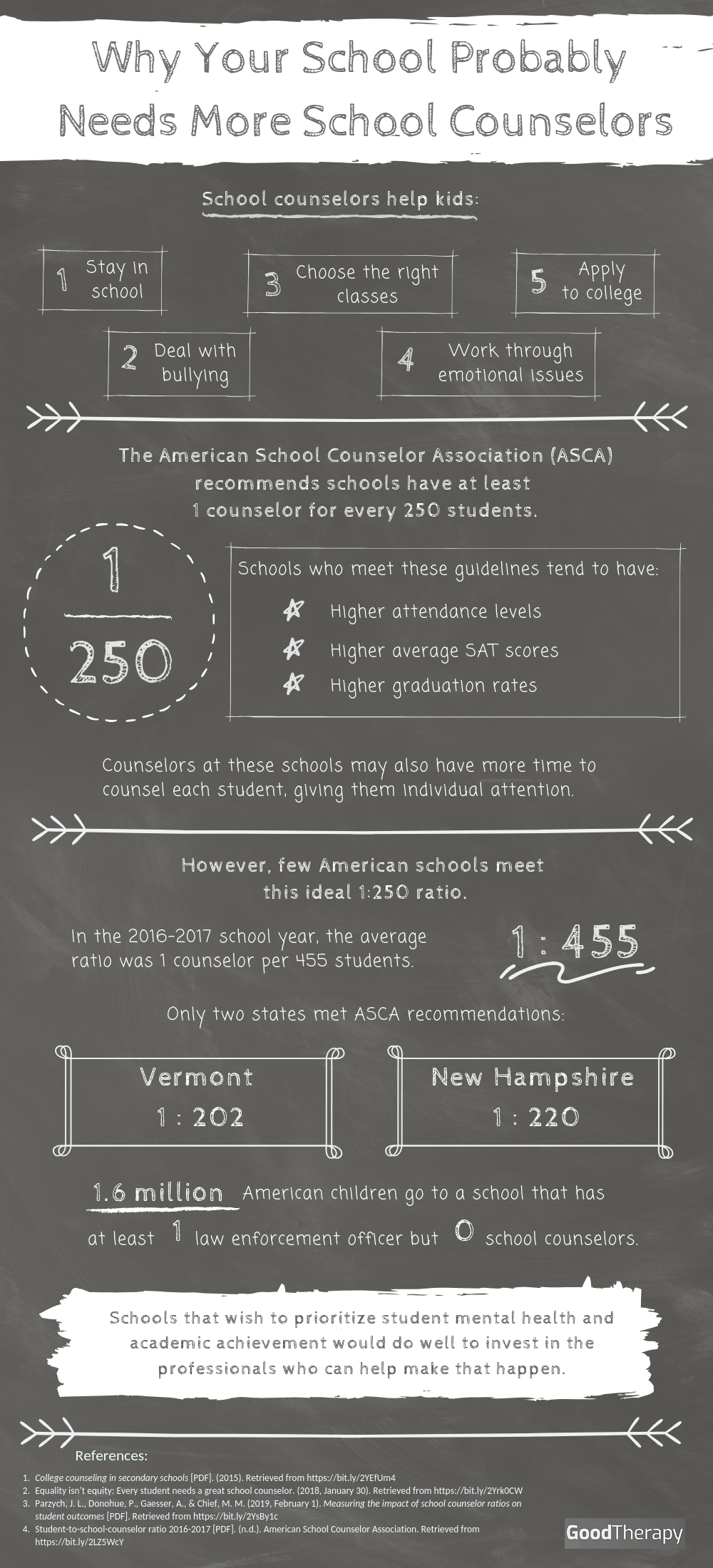
Infographic Text: Why Your School Probably Needs More School Counselors
School counselors help kids:
- Stay in school
- Deal with bullying
- Choose the right classes
- Work through emotional issues
- Apply to college
The American School Counselor Association (ASCA) recommends schools have at least 1 counselor for every 250 students. Schools that meet these guidelines tend to have:
- Higher attendance levels
- Higher average SAT scores
- Higher graduation rates
Counselors at these schools may also have more time to counsel each student, giving them individual attention.
However, few American schools meet this ideal 1:250 ratio. In the 2016-2017 school year, the average ratio was 1 counselor per 455 students. Only two states met ASCA recommendations: Vermont (1:202) and New Hampshire (1:220).
1.6 million American children go to a school that has at least 1 law enforcement officer but 0 school counselors.
Schools that wish to prioritize student mental health and academic achievement would do well to invest in the professionals who can help make that happen.
References:
- College counseling in secondary schools [PDF]. (2015). Retrieved from https://bit.ly/2YEfUm4
- Equality isn’t equity: Every student needs a great school counselor. (2018, January 30). Retrieved from https://bit.ly/2Yrk0CW
- Parzych, J. L., Donohue, P., Gaesser, A., & Chief, M. M. (2019, February 1). Measuring the impact of school counselor ratios on student outcomes [PDF]. Retrieved from https://bit.ly/2YsBy1c
- Student-to-school-counselor ratio 2016-2017 [PDF]. (n.d.). American School Counselor Association. Retrieved from https://bit.ly/2LZ5WcY
© Copyright 2019 GoodTherapy.org. All rights reserved.
The preceding article was solely written by the author named above. Any views and opinions expressed are not necessarily shared by GoodTherapy.org. Questions or concerns about the preceding article can be directed to the author or posted as a comment below.
